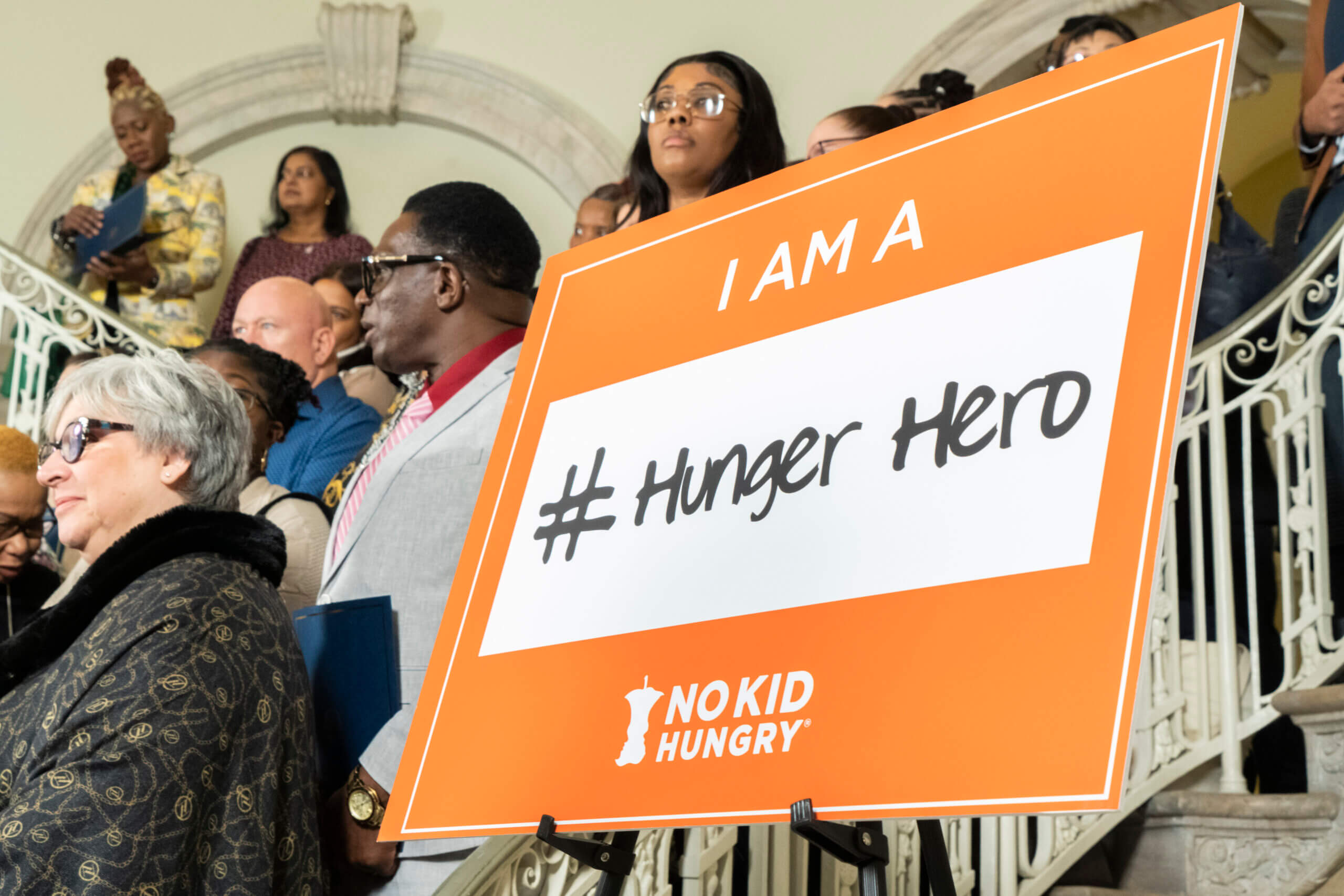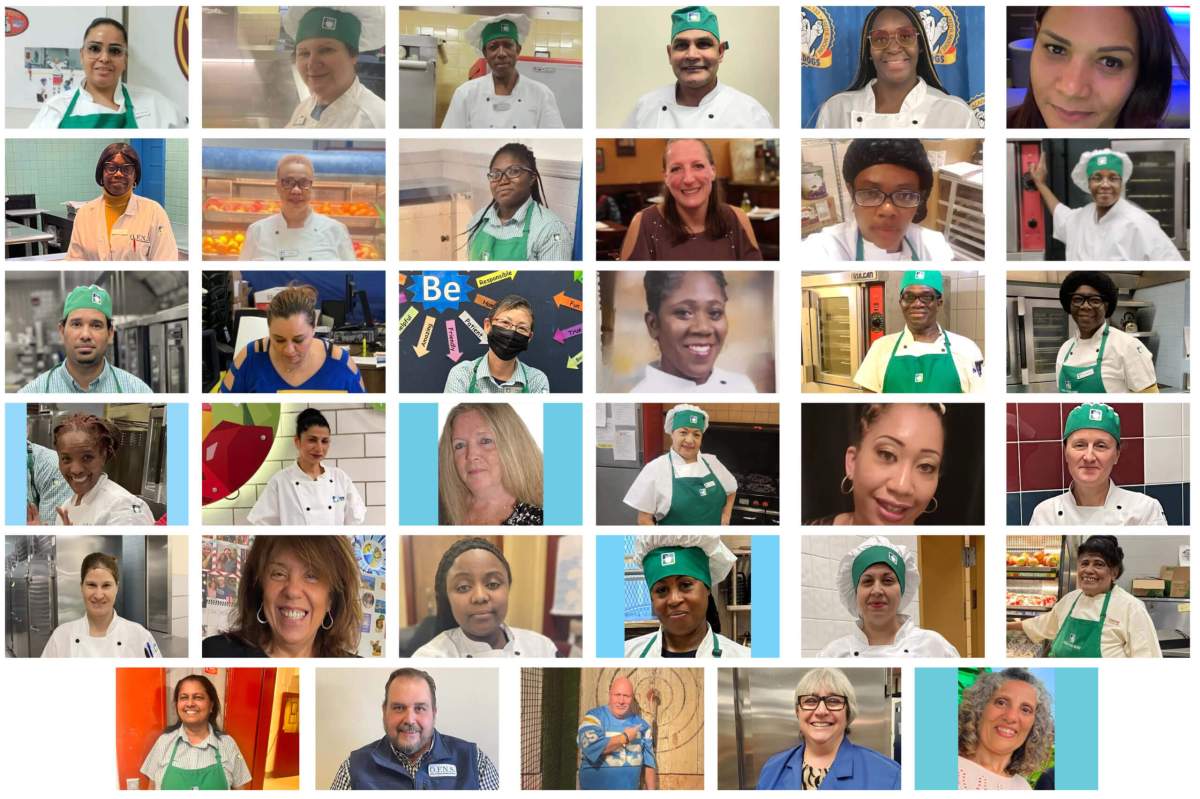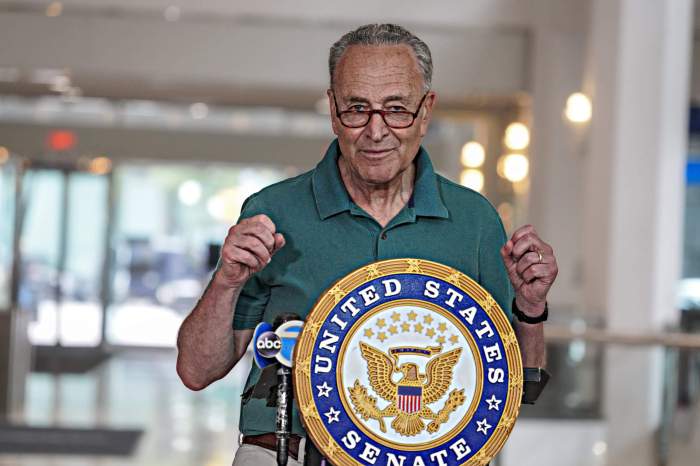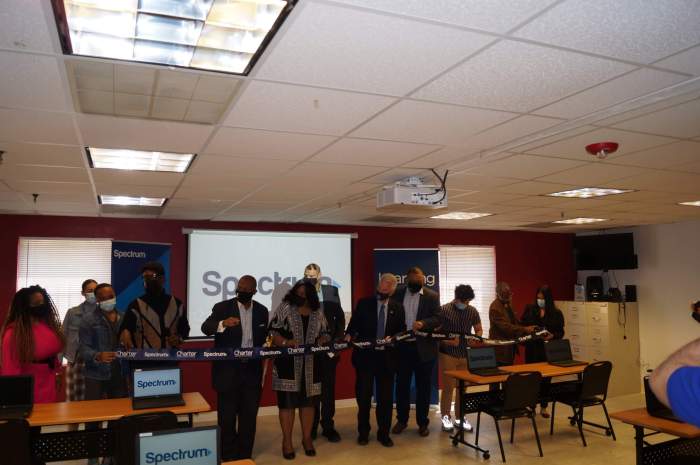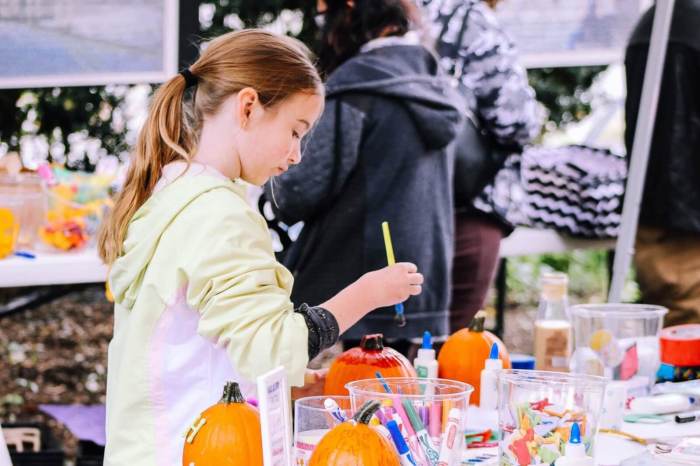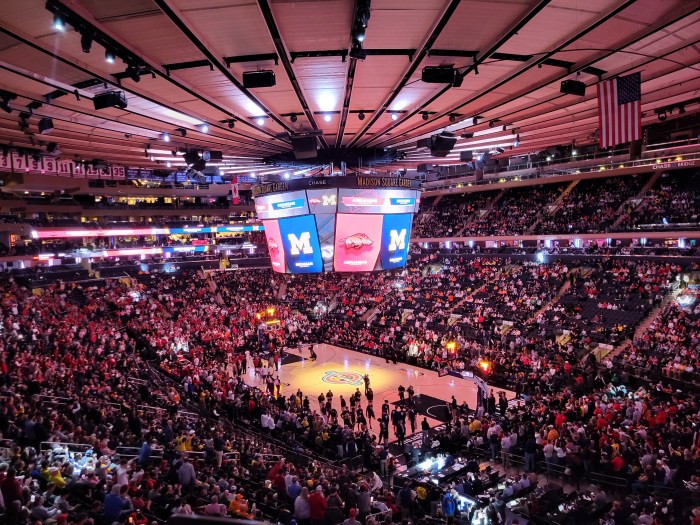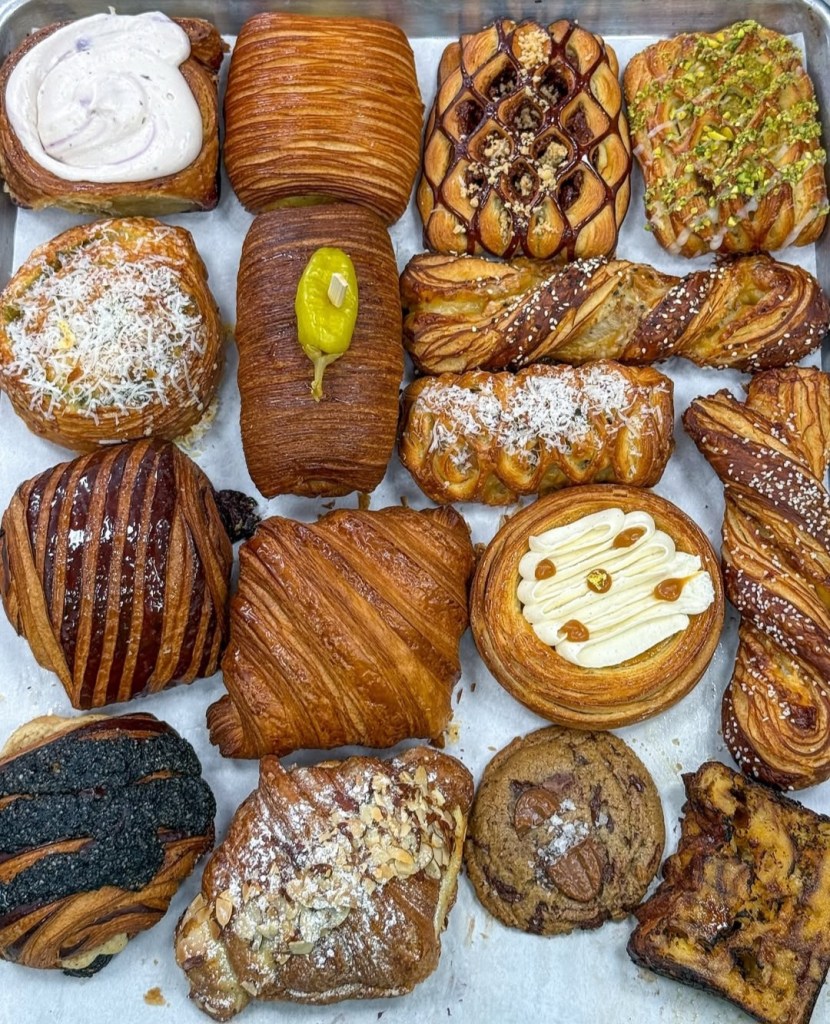Just like visiting grandma’s, there are some folks in New York City whose jobs are to ensure you don’t leave the premises hungry.
On Tuesday, Mayor Eric Adams and Schools Chancellor David Banks, in partnership with nonprofit No Kid Hungry New York, honored 35 “Hunger Heroes” who serve anywhere from hundreds up to thousands of students every day as professional cooks, school lunch aides, food service managers, and in food compliance and distribution.
“No matter how busy our schedules may be, acknowledging our Hunger Heroes is something that we wanted to be a part of,” Adams said at the ceremony.
These food service professionals, nominated out of 8,000 people who work in the city’s food and nutrition service office by people in their school communities, include school lunch aides, back-office workers, and cooks – the people that fight hunger every day, making sure every student receives the proper nutritional benefits that are necessary to excel in the classroom. Out of the 850,000 meals served every day, more than 80% are free to students and parents.
The heroes come with diverse histories and stories. There are those who have gone to bed hungry themselves, those who have served the city’s schoolchildren for decades, an immigrant who has cooked at a Russian boarding school, a head cook who espouses a “You Matter” motto to her students, a former accountant, and those who are always the first one in and last one out during school days. Many regularly experience understaffed kitchens. All are being celebrated for their fight against hunger.
Paulina Valdez Bautista, a food services manager in Brooklyn, took her hero duties to the next level, foregoing the mayor’s ceremony to instead cover an absent cook and feed the roughly 3,000 students across P.S. 147 Success Academy, JHS 50 John D. Wells, and Williamsburg High School. A City Tech graduate, Bautista has worked in the city’s food services for 13 years and received a Hunger Hero award for the first time.
“I was very surprised and felt appreciated that they have knowledge of the work I do,” said Valdez Bautista, who added that her favorite part of work is seeing the smiles on students.
Valdez Bautista said many of the students she serves live in shelters and receive their only meal of the day at school, making her job all the more important and critical in preventing youth hunger. She said the students have grown to love vegetables and vegan food over time, but could go for “chicken tenders, burgers, and pizza” any day. A mother herself, she takes her culinary influence from the Mexican, Haitian, Puerto Rican, and Dominican food she cooks and bakes for her family.
Both Adams and Banks referenced their own mothers, who worked in food service at a daycare center and at a public school. Part of the fight against hunger is also combatting negative stereotypes about school lunches.
“School food workers, school food, and being in the cafeteria in the school has had a bad rap for many, many years where people say all kinds of negative things about school lunch,” Banks said at the ceremony.
School kitchens across the nation stayed open throughout the pandemic, with food service workers playing an even more important role in their communities combatting hunger and poor nutrition. Hunger has worsened, especially for children, since the onset of the COVID-19 pandemic. Nearly one in four children in New York City could now face food insecurity and hunger because of the loss of pandemic SNAP food benefits, which provided around $90 a month for groceries, but ended in February.
Rachel Sabella, director of No Kid Hungry New York, said the biggest priorities are protecting SNAP benefits for low-income New Yorkers and increasing access to healthy school meals.
“We saw that the food students had relied on so often were from school buildings,” Sabella said. “They are still on the frontlines even though the pandemic has lessened.”
“Not many people realize that breakfast and lunch in New York City is completely free,” said Kate Mackenzie, the executive director of the Mayor’s Office of Food Policy. “No questions asked — completely free in an effort to make sure that all kids can come in and enjoy these healthy meals.”
Last year, Share Our Strength, which oversees the No Kid Hungry program, awarded 43 school districts and community organizations across New York with more than $932,000 in grants to expand nutritious food options, equipment, and supplies. There are grants available for school nutrition and community-based organizations that school districts could apply for, according to Sabella.
But because of staffing issues, food service workers could use additional support. The city’s Office of Food and Nutrition Services is currently hiring for school food service managers and kitchen staff in schools across the five boroughs.
For now, the day belongs to not only the city’s nominated Hunger Heroes, but the thousands who serve around 900,000 students in the nation’s largest public school system.
“Not all heroes wear capes,” Adams said. “Some wear aprons.”
